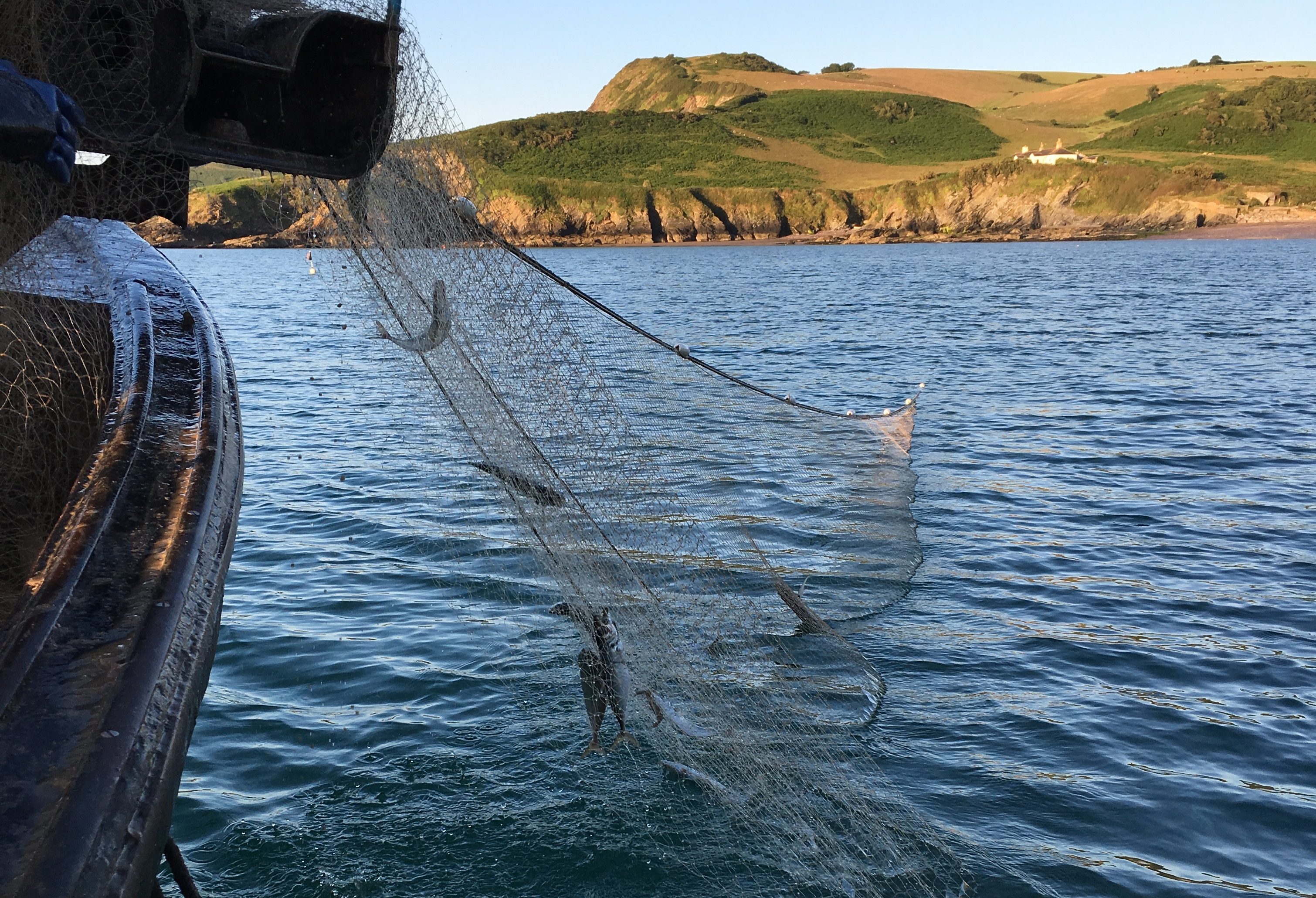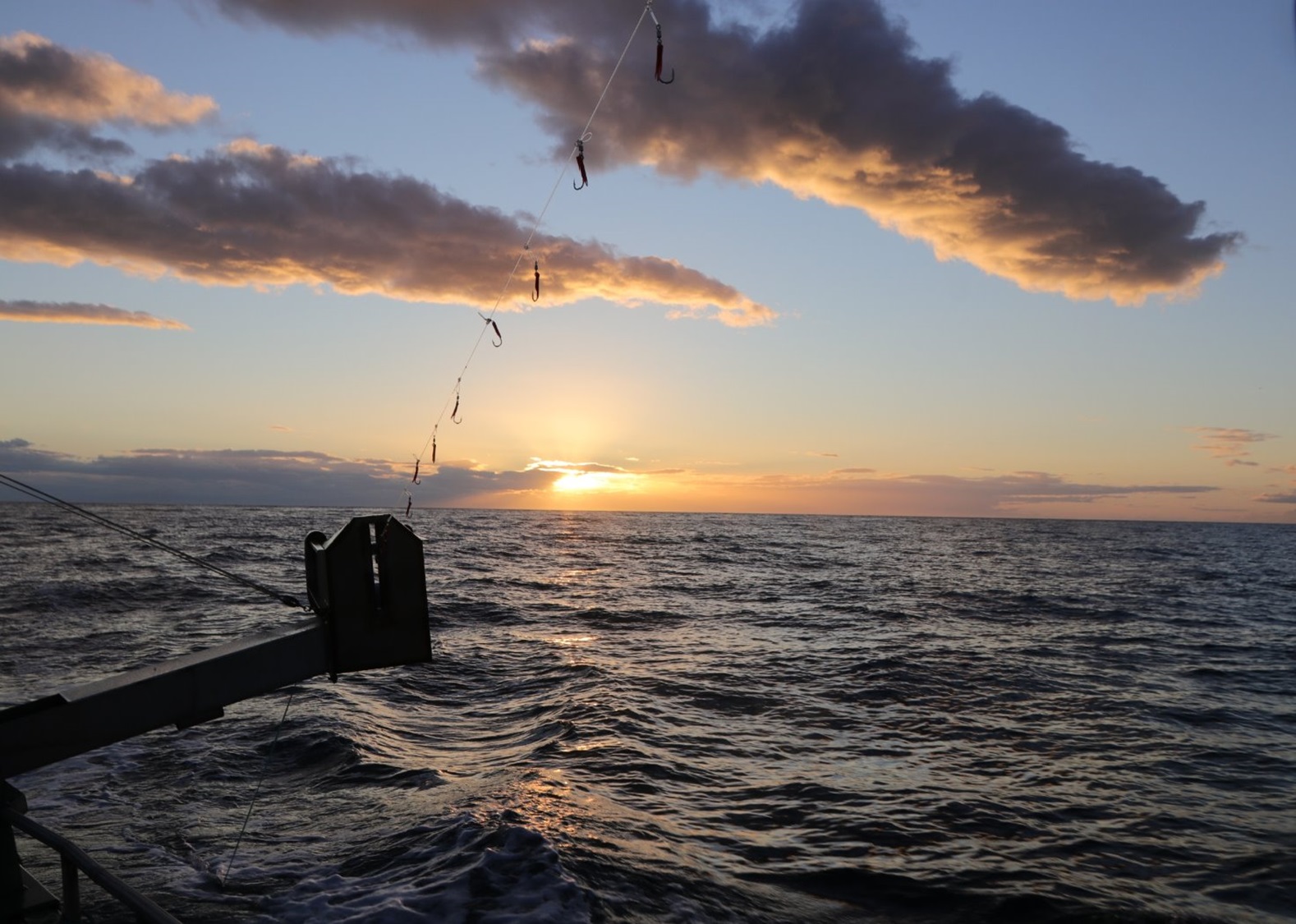Targeted Acoustic Startle Technology (TAST) Nets Responsible Fisheries Innovation Award
ST ANDREWS, SCOTLAND, UK - GenusWave, a leader in human-wildlife conflict mitigation technology, has been awarded the prestigious Responsible Seafood Innovation Award in the Fisheries category by the Global Seafood Alliance. This accolade recognizes the company's innovative Targeted Acoustic Startle Technology (TAST), originally developed at the University of St. Andrews, which effectively reduces interactions between marine mammals and fishing operations.
The Responsible Seafood Innovation Awards were presented at the Responsible Seafood Summit on October 22, 2024. TAST utilizes brief acoustic signals to trigger a startle reflex in specific marine mammal taxon, effectively keeping them away from conflicts with human objectives (Götz & Janik, 2015; 2016). The benefits of TAST have been documented over many years of research and eight key peer-reviewed studies. This technology addresses longstanding challenges in the seafood industry, including:
- Reduction of bycatch and marine mammal interactions
- Increased catch rates and fishing time
- Decreased fish mortalities and predator induced stress in aquaculture operations
- Significantly decreased noise pollution compared to traditional acoustic deterrents
- Taxon-specific targeting, minimizing impact on non-target marine life
Field tests have demonstrated that TAST can lead to:
- Seal predation reduction of 91-97% on salmon farms in Scotland, without impacting non-target species such as harbor porpoises (Götz & Janik, 2015).
- In the UK (bottom set gillnet and hook & line fisheries), a 97% decrease in losses to grey seals during mackerel fishing operations and a 74% increase in catch due to reduced seal disruptions (MMO, 2020, Whyte et al., 2021).
- Up to a 94% reduction in predation events by Steller sea lions on a salmon troll fishery in Alaska (Jemison et al. (work in progress)).
- In Norway, a 92% reduction in orca activity around a herring purse seine fishery (Langstein, 2023).
- In Washington State, USA, a 43.8% reduction in the overall foraging success of individual seals predating on salmon migrating through a riverine pinch point (McKeegan et al., 2024).
- Consistent effectiveness without habituation by target species (Götz & Janik, 2016).
Those who have seen these results first hand are excited about the possibilities that TAST offers.
David Whyte, Former Chair of the Rosehearty Harbour and Inshore Fisherman’s Association (RHIFA) spoke about the necessity of this technology for the future of his industry: “Seal interference and predation, within our summer mackerel fishery, is increasing year on year and is now at a level where it is hampering fishing efforts to such a scale that a number of skippers no longer participate in the fishery, or are seriously considering withdrawing.
The work we did with Thomas Goetz (et al) has given us hope that a version of TAST technology can make a significant difference within our fishery, without harming marine life. Genuswave technology has been our only chink of light in an ever-darkening situation
We see TAST as potentially the only suitable means of minimising the impact seals are having on our livelihoods.”
Suzannah Walmsley, an Associate at ABPmer described her experience with the technology: “Interactions between seals and fisheries harm fishers’ ability to earn a livelihood, as well as affecting individual seals; the GenusWave TAST offers real promise for helping to reduce such interactions. Having tested TAST in an inshore mackerel gillnet fishery and inshore line fishery we have seen positive effects, with reductions in depredation by seals.”
Sam Cox, a senior postdoctoral researcher at the University College Cork emphasized the benefits of TAST’s target specificity: “We've been working with GenusWave over the past couple of years, testing TAST devices for use in static-net fisheries suffering from high levels of depredation. Many challenges exist in developing instrumentation that can be deployed at sea in rough conditions for long periods of time. The engineers at GenusWave have worked closely with us, taking onboard feedback to improve and tailor the design of their units for our use, and we only have positive things to say of our experience working with them. TAST technology is particularly interesting for our application as our fishery operates in an area frequented by many cetacean species, and minimising disturbance to non-target species of high priority. TAST aims to achieve this by using short exposure times coupled to a targeted frequency band. Initial results from our trials show no difference in cetacean presence (common dolphins) around control and test nets. We look forward to continuing our work with GenusWave in the future.”
Kim Raum-Suryan, a Marine Mammal Specialist in the Protected Resources Division (Alaska Region) of the National Marine Fisheries Service; and Lauri Jemison, a Wildlife Biologist with the Gulf and Bering Marine Mammal Program of the Alaska Department of Fish and Game spoke about the benefits of TAST for United States fisheries: “We tested the Targeted Acoustic Startle Technology (TAST) on Steller sea lions in Southeast Alaska as a way to mitigate depredation and harmful interactions with salmon fisheries. Our testing included a new prototype developed by GenusWave designed to be deployed from salmon fishing boats. Our results are preliminary, but so far we’ve found that our tests resulted in a localized movement by Steller sea lions away from our boat during TAST sound exposure. We are very optimistic about the potential for TAST to reduce sea lion – fishery interactions, preserving fishermen’s catch and gear without causing injury to sea lions. The scientists from the University of St. Andrews have been exceptional to work with.”
Kylie DaCunha, Director of Special Projects at GenusWave, remarked, "Winning this award underscores our commitment to developing technology that not only enhances operational efficiency but also promotes marine conservation. This recognition is not just a win for our team, but a testament to the hard work and dedication of everyone aligned with our mission to advance sustainable seafood production practices."
The recognition from the Global Seafood Alliance reflects GenusWave's dedication to innovation and sustainability in seafood production. As the company continues to expand its partnerships globally, it will further mitigate harmful marine mammal interactions.
GenusWave's mission is to create practical solutions that balance industry needs with environmental health. "Our technology is scalable and designed to foster healthier ecosystems while improving operational outcomes. We believe that even a small technology company can have a global impact, and we’re helping to build a world where businesses don’t have to choose between profit and purpose," DaCunha added.
For more information about GenusWave and its award-winning technology, visit genuswave.com or contact Kylie DaCunha at kdacunha@genuswave.com.
About: GenusWave is a science-based company dedicated to designing and implementing technologies that prevent human-wildlife conflict. Our main focus, Targeted Acoustic Startle Technology (TAST), deters marine mammals from human activities, ensuring their safety and minimizing disruption. TAST operates on the autonomous auditory startle reflex, triggering avoidance responses without causing harm. Our research, documented in peer-reviewed literature, continues to explore future applications to benefit both people and wildlife.
TAST was developed at the University of St. Andrews' Scottish Oceans Institute, a globally renowned organization for marine mammal research. Our collaborative efforts aim to address the limitations of conventional Acoustic Deterrent Devices and protect marine life from human activities.
Press release distributed by Pressat on behalf of GenusWave, on Tuesday 19 November, 2024. For more information subscribe and follow https://pressat.co.uk/
Seals Sea Lions Orcas Dolphins Marine Mammals Fisheries Aquaculture Seafood Technology Innovation Sustainability Ecosystems Environment & Nature
Published By

+13603620227
kdacunha@genuswave.com
https://genuswave.com/
Kylie DaCunha
GenusWave - Director of Special Projects
kdacunha@genuswave.com
+1 (360) 362-0227
https://genuswave.com/
Visit Newsroom
You just read:
Targeted Acoustic Startle Technology (TAST) Nets Responsible Fisheries Innovation Award
News from this source:



